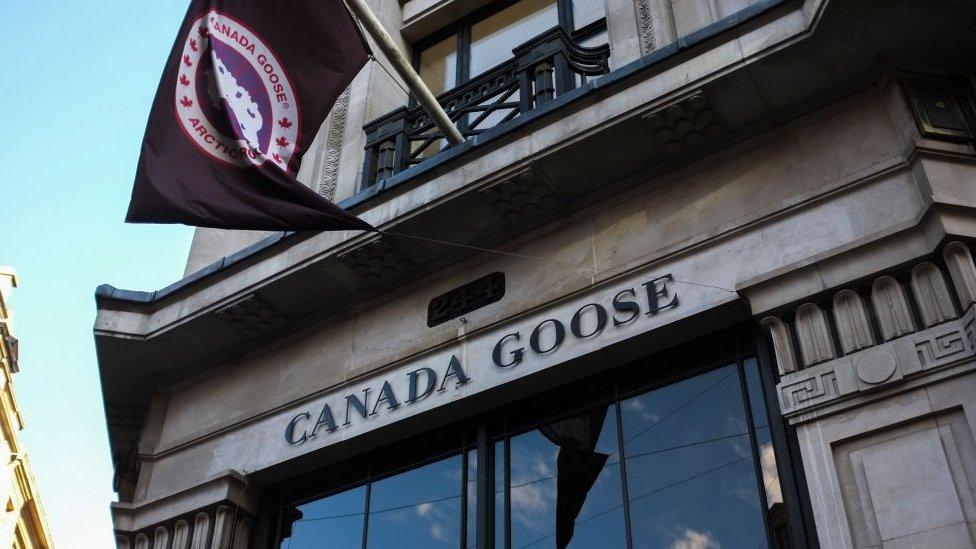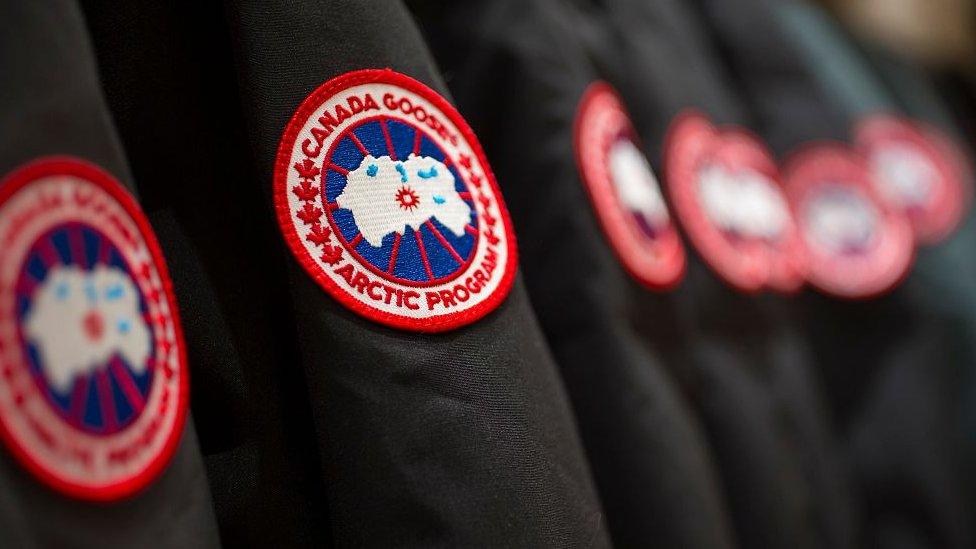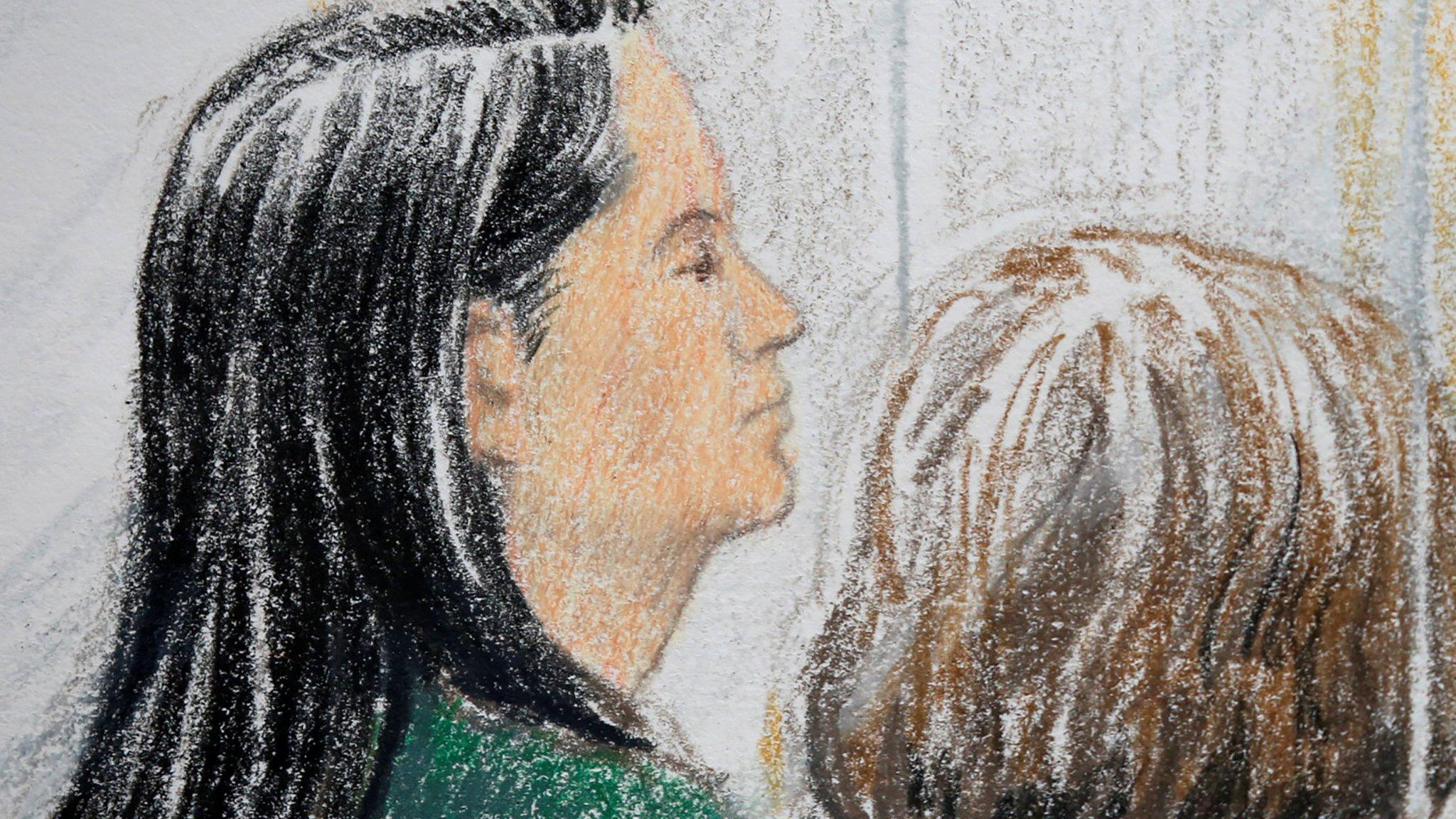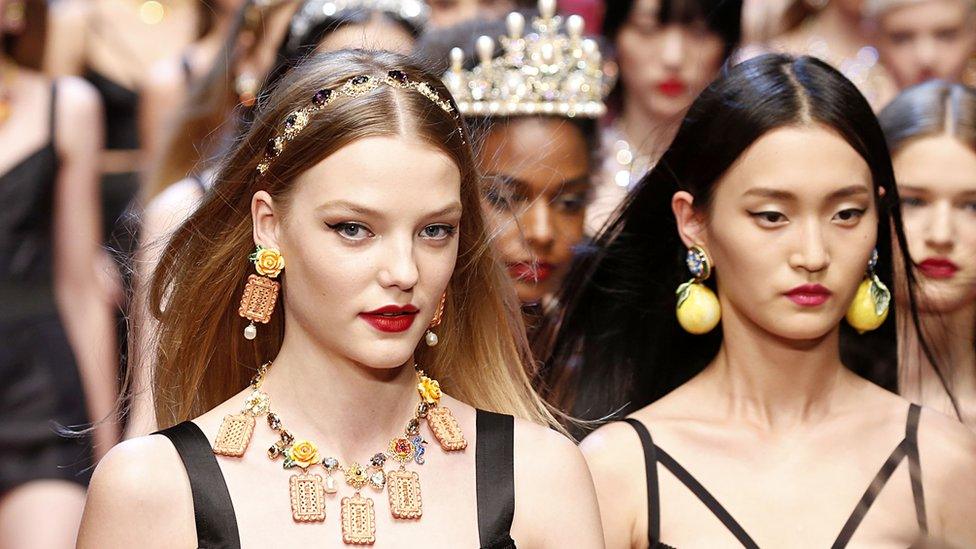Is there really a Canada Goose boycott in China?
- Published

Apparel brand Canada Goose is known for its luxury down jackets
Luxury jacket maker Canada Goose seems to have been caught up in a political dispute between China and Canada.
On Monday, Chinese state media said local consumers had begun to boycott Canadian brands, in particular, Canada Goose.
The move was reportedly in response to Canada's detention of an executive from Chinese tech company Huawei.
But is the backlash against Canada Goose in China as dramatic as it seems?
'I cannot afford it anyway'
News of an apparent boycott emerged after Meng Wanzhou - Huawei's chief financial officer and daughter of the firm's founder - was arrested in Canada last week.
Ms Meng could be extradited to the US to face fraud charges linked to the alleged violation of sanctions on Iran. She was granted bail on Tuesday by a Canadian court.
On Monday, the Global Times published an article stating that her detention "seem[ed] to have kicked off a boycott of Canadian goods, external... with Canada Goose hit first."
The brand has a substantial following in China.
Earlier this year the company announced an expansion plan for China, including establishing a regional head office in Shanghai. It also opened a retail store in Hong Kong and a pop-up store in Beijing - with a permanent store soon on its way.
It is not uncommon for Chinese consumers to boycott popular brands.
Most recently, they successfully lobbied against luxury label Dolce and Gabbana after it was accused of trivialising Chinese culture in a marketing campaign.
The backlash was huge on social media site Weibo and the brand's products were eventually pulled from e-commerce sites in China.
In comparison to Dolce and Gabbana, the anger against Canada Goose has been relatively mild.
While some backlash against Canada Goose was evident on Weibo, the bulk of comments focused on the fact that the average Chinese consumer cannot afford the luxury parka brand to begin with.

The luxury jacket maker was founded in Toronto in 1957
Canada Goose jackets can cost nearly £1,400 ($1,750).
"I will boycott Canadian Goose... because I cannot afford it anyway," said one user on Weibo.
"Oh... the stocks plunged, but the prices haven't plunged... I'll keep waiting," another said.
Others pointed out that they would rather buy goods from Bosideng - a Chinese down jacket maker - and a much more affordable brand.
Canada Goose is a visible target mostly because of its name, as one commenter pointed out.
"Poor Canada Goose, it has Canada in its name... other Canadian brands have not been mentioned."
Shares take a hit
As Ms Meng's bail hearing was being held this week in Vancouver, Canada Goose shares fell sharply. The stock slumped nearly 20% over four days.
That's a big move, but it is not clear if this is tied to the apparent boycott. The company's shares were heading south before Ms Meng's detention was revealed.
In contrast, Bosideng saw its share prices surge over the past few days.
Shares typically move - up or down - on the perceived prospects of a company. So if investors feel upbeat about future growth, they will buy a stock and that will push prices higher.
- Published12 December 2018

- Published11 December 2018

- Published23 November 2018
